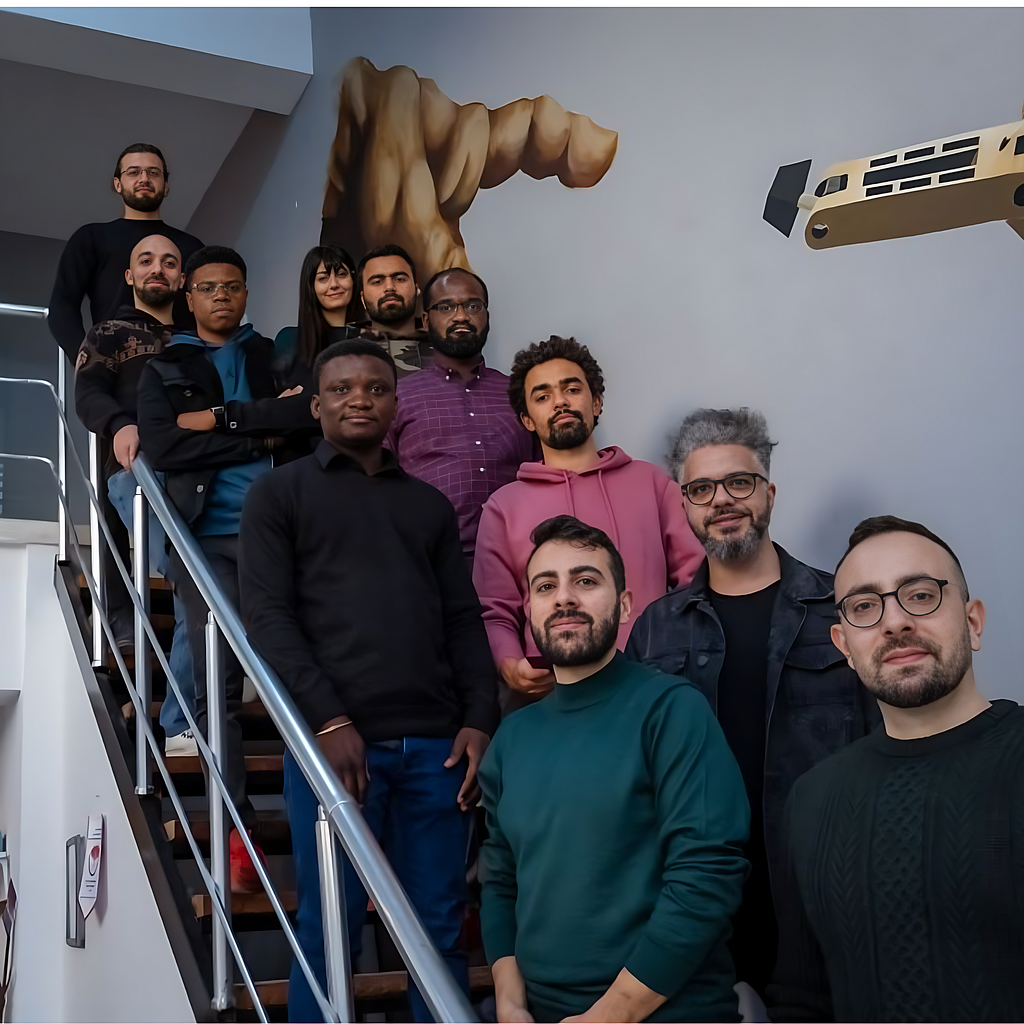Operational Scalability: Ersel Aker of FutureCast On How To Set Up Systems, Procedures, And People To Prepare A Business To Scale

Promote Continuous Learning — in a rapidly changing business environment, it’s important to encourage your team to stay on top of industry trends. At our software agency, we foster adaptability through regular knowledge-sharing sessions. Things like addressing outdated coding practices improved our code quality and has really helped us to stay ahead in the tech game.
In today’s fast-paced business environment, scalability is not just a buzzword; it’s a necessity. Entrepreneurs often get trapped in the daily grind of running their businesses, neglecting to put in place the systems, procedures, and people needed for sustainable growth. Without this foundation, companies hit bottlenecks, suffer inefficiencies, and face the risk of stalling or failing. This series aims to delve deep into the intricacies of operational scalability. How do you set up a framework that can adapt to growing customer demands? What are the crucial procedures that can streamline business operations? How do you build a team that can take on increasing responsibilities while maintaining a high standard of performance?
In this interview series, we are talking to CEOs, Founders, Operations Managers Consultants, Academics, Tech leaders & HR professionals, who share lessons from their experience about “How To Set Up Systems, Procedures, And People To Prepare A Business To Scale”. As part of this series, we had the pleasure of interviewing Ersel Aker.
Ersel is the founder and CTO of FutureCast; a SaaS development agency that provides organisations across all sectors with SaaS solutions and digital products.
Can you tell us a bit about your ‘backstory’ and how you got started?
I graduated from Manchester University in 2015 and started tutoring at Manchester Codes, the city’s only full-stack part-time coding bootcamp at the time, before going on to eventually lead the teaching team there.
Since then, I’ve started a number of different ventures including JustFulfil, an ecommerce logistics company that I launched with one of my students, and CyprusCodes, a part-time coding bootcamp that helped to train over 100 students during the pandemic.
In 2021, I co-founded FutureCast, a SaaS development agency that provides organisations across all sectors with SaaS solutions and digital products. Today, we’re a team of 11, with Levi’s and Fatsoma among our clients.
It has been said that our mistakes can be our greatest teachers. Can you share a story about the funniest mistake you made when you were first starting? Can you tell us what lesson you learned from that?
Starting out as a junior dev, I rushed a third-party API into production without testing — it’s safe to say that chaos ensued! Now, as the agency owner, we swear by the mantra: “Think, test, then go live.” It’s all about having a solid testing strategy and rollback plan. Lesson learned: haste makes waste, and our code is now solid as a rock.
What do you think makes your company stand out? Can you share a story?
Many of the team have come to FutureCast via the coding bootcamp, which has brought a diversity of skillsets and experience. Having members of the team join from non-technical backgrounds leads to different ways of thinking and a valuable curiosity.
One of our software engineers, for example, had previously been working for a YouTube channel. She had never considered coding or a career in tech, but just six months after joining the boot camp she had progressed to tutoring some of the newer students. The immersive environment and learning-by-doing approach meant she accelerated quickly and is now developing some incredibly complex SaaS solutions for clients in the edtech, ecommerce, and logistics industries.
You are a successful business leader. Which three character traits do you think were most instrumental to your success? Can you please share a story or example for each?
- Ask the right questions — We work with a wide range of clients but, for start-ups in particular, we will often be brought in early, at the ideation phase. The ability to tease out exactly what an organisation is trying to achieve is an important, and often undervalued, part of the job. For example, we worked with a tech start-up in the manufacturing industry who had a brilliant concept but wasn’t sure how to package it into a viable product. We worked with them to get under the skin of the business and developed a web-based dashboard that could capture data and produce insights that would save their customers a significant amount of time and effort. Clear communication from the beginning ensured we provided the right solution, first time.
- Don’t be a perfectionist — being at the helm of multiple ventures means I’m often pulled in different directions and the ability to juggle everything isn’t always easy. There’s a temptation to be across everything all the time but you’ll achieve nothing if you try to do everything perfectly. The best results happen when you step away and create an environment where the team feels empowered.
- Be optimistic — as a founder, the team looks to me to set the tone and lead the company culture. I’ve always strived to create an atmosphere that is uplifting, where people feel encouraged to try new things and explore. Focusing on what’s going to go wrong can be limiting and create situations where people start to doubt themselves or are afraid to even try. In contrast, when you adopt a ‘let’s see what’s possible’ mentality, you get the most creative, most innovative ideas.
Leadership often entails making difficult decisions or hard choices between two apparently good paths. Can you share a story with us about a hard decision or choice you had to make as a leader? I’m curious to understand how these challenges have shaped your leadership.
Making hiring decisions is always hard. The coding bootcamp means we have access to some incredible talent, and we often have several strong candidates for any given position. Candidates that can demonstrate genuine curiosity and are excited about what they do always stand out, as do those who can articulate complex topics clearly. It’s a real skill to be able to cut through the noise and focus on what matters.
Thank you for all that. Let’s now turn to the main focus of our discussion about Operational Scalability. In order to make sure that we are all on the same page, let’s begin with a simple definition. What does Operational Scalability mean to you?
When I think about operational scalability, I think of it like a human brain. As it learns more, it can grow, explore, adapt and exploit opportunities around it, and has the ability to scale without too much additional input.
Which types of business can most benefit from investing in Operational Scalability?
Anyone can benefit from operational scalability, but SaaS companies — or those who use SaaS products within their organisation — may find it easier to invest in. The agile and flexible nature of Software as a Service models makes it easier to automate and streamline tasks and processes such as project management, CRM or accounting. It’s also more cost-effective — the flexibility of pay-as-you-go combined with no upfront costs means you can allocate budget and resources more efficiently.
Why is it so important for a business to invest time, energy, and resources into Operational Scalability? In contrast, what happens to a business that does not invest time, energy, and resources into Operational Scalability?
Whether it’s driven by the need to capitalise on a new opportunity, or fulfilling existing demand, there is often a temptation for businesses to scale quickly. But going too fast can be counterproductive. I’ve seen scale-ups double their sales team in a week without allowing enough time for people to onboard properly, or to grasp the culture of the business and what it is they’re selling. In worst cases, they’ve then had to re-hire, which is costly, time-consuming, and prohibitive to growth.
The focus should be on creating processes and policies that can guide growth in a controlled way. When that happens, businesses can do everything more efficiently — operations can be streamlined, collaboration and communication improves, and people are freed up to focus on more meaningful tasks.

Here is the primary question of our discussion. Based on your experience and success, what are the “Five Most Important Things A Business Leader Should Do To Set Up Systems, Procedures, And People To Prepare A Business To Scale”?
1 . Develop short and long-term goals — creating a clear vision of what success will look like is an essential first step. From there, you can work backwards to identify the resources, tools, and skills you need to reach your goals. This will include reviewing what’s already in place and identifying ‘quick win’ opportunities where small improvements can be made. For example, you may have a brilliant salesperson who’s spending a lot of time doing manual tasks. Could aspects of this be automated to free them up and boost productivity?
2 . Control the chaos — introducing new systems or procedures should include a ‘testing’ period. Build in time so that teams can try something without too many rules or stipulations, and where they are given free rein to fail. Exploration and experimentation should come first — after that, you can ringfence it and put more structured workflows in place.
3 . Empower your team — as you grow, it becomes impossible to have oversight of everything. But that also shouldn’t be a worry if you have a team that’s empowered to make things happen. The speed of decision-making is particularly important in an environment where change occurs daily.
4 . Document the successes — it’s no good putting things in place if you don’t know how effective they are. Set aside time to regularly review core processes in the business and ask the tough questions. Has X piece of software helped us achieve X? Equally, don’t be afraid to get rid of something if it’s not working.
5. Promote Continuous Learning — in a rapidly changing business environment, it’s important to encourage your team to stay on top of industry trends. At our software agency, we foster adaptability through regular knowledge-sharing sessions. Things like addressing outdated coding practices improved our code quality and has really helped us to stay ahead in the tech game.
What are some common misconceptions businesses have about scaling? Can you please explain?
One of the biggest misconceptions about scaling is that it’s just doing the same thing, but more of it. In truth, with each new phase of growth, the business will have to undergo some element of change — this could be restructuring how the team operates or introducing new lines of communication. This isn’t always easy, especially for the founding team who may be used to operating in a certain way. Clear communication and the opportunity to provide feedback can help ensure any changes run smoothly.
How do you keep your team motivated during periods of rapid growth or change?
As a leader, it’s my role to ensure I’m always communicating with the team and explaining why something is happening. People are keen to get behind change if you can explain what’s prompted it, how you plan to deal with it, and what the outcomes are for individual team members and the wider business. To keep people motivated, you might also decide to introduce a financial incentive or reward in tandem with any new growth targets. This can be a great way to boost morale and demonstrate recognition.
Can you please give us your favorite “Life Lesson Quote”? Can you share how that was relevant to you in your life?
‘‘Hope for the best, prepare for the worst!’’ It’s something that has always stood me in good stead and is a reminder to remain positive while always keeping a lookout for potential hurdles or hiccups!
You are a person of great influence. If you could start a movement that would bring the most amount of good to the most amount of people, what would that be? You never know what your idea can trigger. 🙂
I would initiate a global mentorship program aimed at connecting seasoned tech professionals with newcomers in the field. The program would focus on fostering meaningful relationships, providing guidance, and sharing practical insights to help navigate the complexities of the tech industry.
The mentorship would not only cover technical skills but also emphasise soft skills, career development, and work-life balance. By creating a supportive community, we could empower individuals from diverse backgrounds and underrepresented groups, fostering inclusivity and diversity in the tech world.
Thank you so much for sharing these important insights. We wish you continued success and good health!
Operational Scalability: Ersel Aker of FutureCast On How To Set Up Systems, Procedures, And People… was originally published in Authority Magazine on Medium, where people are continuing the conversation by highlighting and responding to this story.
